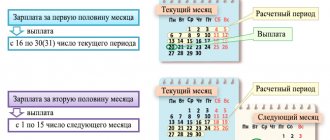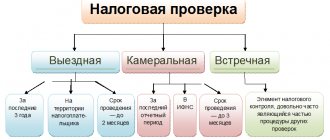Why do we need a provision on business trips?
There is no direct rule in Russian legislation that would say that every company must approve its own regulations on business trips. The procedure for financing employees on work trips can be reflected in another document, in particular in the regulations on remuneration.
However, many organizations still have special acts regulating “travel” issues. The explanation is simple - such a document can describe in detail the types of business trips, the amount of reimbursable expenses, acceptable types of transport used and categories of hotels, and much more.
An employer who pays travel allowances in strict accordance with the current company regulations will easily justify recognizing the costs of business trips as excluded expenses when calculating income tax. This in turn minimizes the risk of misunderstandings with tax authorities.
If management does not send employees on business trips and does not plan to do so, you can quite successfully do without the position. In all other cases, it is better to approve such a document and thus avoid claims not only from the tax service, but also from subordinates.
Regulations rules
A single unified form of regulation on business trips to the Russian Federation has not been approved. However, this document relates to the local regulations of the organization, and therefore it must comply with the requirements of the Russian national standard GOST R.7.0.97-2016, which is recorded by Rosstandart order No. 2004-st dated 12/08/2016. This standard establishes the specifics of the design of organizational and administrative documentation.
Regulations on business trips can be created on paper or in electronic format. When preparing the act, the following rules should be observed:
- If a document contains 2 or more pages, the second and subsequent pages are numbered.
- The text can be placed on the front and back of the sheet.
- You need to use a freely available free font (12, 13 or 14).
- Headings are centered to fit the width of the text.
- Text spacing – 1 or 1.5.
- The text needs to be aligned in width.
- Certain information may be highlighted in bold (for example, “addressee”, “signature”, headings).
- The approval stamp is affixed in the upper right corner of the first sheet.
Special attention should be paid to the document details. In particular, the full name of the organization must be indicated, as this is stated in the statute. Below the name of the company is the name of the form itself.
Position structure
The structure of the business travel regulations is determined at the discretion of the employer. Typically, a document includes several sections. The breakdown into sections makes it easier to study the contents of the act, as well as to quickly find the necessary information.
Table No. 1. An example of the structure of a provision on business trips.
| Section title | Content |
| General provisions |
|
| The procedure for sending employees on business trips |
|
| Duration of business trip and work schedule while away |
|
| Reimbursable costs |
|
| Preparation and submission of business trip reports |
|
| Payment for weekends and holidays |
|
| Guarantees for employees on business trips |
|
| Features of business trips outside the territory of the Russian Federation |
|
| One-day business trips |
|
Download a free sample regulation on business trips
Download a free sample regulation on business trips in budgetary institutions
Regulations on the specifics of sending employees on business trips
Regulation No. 749 on business trips was approved by Decree of the Government of the Russian Federation No. 749 of October 13, 2008, it addresses the main issues governing the sending of employees on business trips. Thus, the regulation determines that the employee’s place of work is considered to be the location of the company where he works, and if the employee is sent to a separate division of the company, which is located in a place other than the location of the company, this trip is considered a business trip. But if the work of a company employee is of a traveling nature, then the business trip is not recognized as a business trip.
The duration of the business trip is determined by the employer, guided by the volume and complexity of the work to be done by the employee. The period when the employee is actually on a business trip is determined by the tickets that the employee provides upon return. Thus, the day of departure on a business trip is considered the day of departure of the vehicle (train, plane, etc.) that the employee travels to the destination, and the day of the employee’s return is determined in the same way.
What should I write in the “General Provisions” section?
This section needs to reflect the procedure for applying the provision, indicate the relations regulated by this act, and define the basic concepts.
When drawing up an act, it is necessary to be guided by the Labor Code of the Russian Federation and the Tax Code of the Russian Federation, other laws and subordinate regulatory sources. In particular, the mechanism for sending employees on business trips is provided for by Government Decree No. 749 of October 13, 2008. When preparing the regulations, the specialist entrusted with this task can take Government Resolution No. 749 as a basis, additionally specifying the specifics of work trips for employees of a particular organization.
The “General Provisions” usually provides a list of basic terms, such as:
- business trip (you can use the definition given in Article 166 of the Labor Code of the Russian Federation, according to which a business trip is a trip by a hired person on behalf of the employer for a certain period to perform an official task outside the place of permanent work);
- place of permanent work;
- travel expenses;
- advance report;
- cash advance.
Daily allowance
One of the accounting features when sending employees on business trips abroad may be the calculation and payment of daily allowances. Each company has the right to set its own daily allowance. The daily allowance established in the local regulatory act of the organization (“Regulations on business trips”) can be fully accepted as income tax expenses, but for personal income tax purposes limits are set - 700 rubles per day for business trips within the Russian Federation and 2,500 rubles per day for business trips abroad (Article 217 of the Tax Code of the Russian Federation). If the company accepts daily allowances in amounts exceeding these standards, then the employee will have to withhold personal income tax from the difference, as well as pay insurance premiums (clause 2 of Article 422 of the Tax Code of the Russian Federation).
Typically, the amount of daily allowance for Russia and for trips abroad differs. Daily allowances are paid according to the country of entry (clauses 17, 18 of the Regulations “On the Peculiarities of Sending Workers on Business Trips”, approved by Decree of the Government of the Russian Federation of October 13, 2008 No. 749, as amended on July 29, 2015). For business trips to countries included in the CIS, with which intergovernmental agreements have been concluded that border crossing marks are not made, the dates of departure and entry into the Russian Federation are determined by travel documents, and for business trips abroad - by border crossing marks in the international passport. For one-day business trips abroad, daily allowances are paid in the amount of 50 percent of the norm for business trips abroad (clause 20 of the Regulations on Business Travel).
It is noteworthy that if it is customary for a company to pay daily allowances for one-day business trips around Russia, then such payments are subject to insurance premiums. The Ministry of Finance, referring to paragraph 11 of the Regulations on Business Travel, explains that for a one-day business trip in Russia, daily allowances are not paid, therefore, paragraph 2 of Article 422 of the Tax Code of the Russian Federation does not apply, according to which, in particular, the daily allowances provided for in paragraph 3 of the article are not subject to insurance premiums 217 Tax Code of the Russian Federation. Therefore, daily allowances paid for a one-day business trip in the Russian Federation are subject to contributions. Moreover, if the employer reimburses expenses associated with a business trip, then such payments are not considered subject to insurance premiums, since they are not the employee’s income.
As for personal income tax, in letters of the Ministry of Finance dated October 1, 2015 No. 03-04-06/56259, dated March 1, 2013 No. 03-04-07/6189 (sent by letter of the Federal Tax Service of Russia dated March 26, 2013 No. ED-4 -3/ [email protected] ) the following position is indicated: “When sending an employee on a one-day business trip, the amounts of money paid to the employee in exchange for daily allowance are exempt from taxation in the amounts provided for in paragraph 3 of Article 217 of the Code.”
The procedure for sending an employee on a business trip
In order to send an employee on a business trip, the employer must issue an appropriate order. Very often, this act is preceded by a memo from the head of the department in which the employee is registered.
Samples of a memo and an order from the employer to send an employee on a business trip can be approved as appendices to the regulations on business trips.
Since 2015, according to the law, it is no longer necessary to issue a travel certificate. However, many employers continue to use it in 2021. If the organization has not abandoned the use of a travel certificate as one of the main internal documents, this should be reflected in the regulations.
The regulations can also stipulate that confirmation of the length of an employee’s stay on a business trip is a memo about the business trip issued by the employee. There is no single template, but the employer has the right to develop it independently.
It is mandatory for the employee to draw up an advance report - a document about the amounts of money spent. When preparing, you need to use the unified form No. AO-1. Documents confirming transportation and accommodation expenses are attached to the report, for example:
- checks;
- receipts;
- boarding passes;
- strict reporting forms and more.
Is it necessary to develop regulations on sending on a business trip?
The provisions on business trips are not in the list of mandatory standard documents and internal acts of personnel records management, but the order of the Ministry of Culture established a requirement for the execution of certain documents relating to business trips - an order to send on a trip, an official assignment or an employee traveling abroad.
The regulation on sending on a business trip is not a mandatory document for every enterprise, therefore each enterprise manager independently decides how much he needs this internal act.
Business trip dates
The duration of the work trip and the mode of completion of the assigned task are determined by the head of the company or the head of a specific division of the company. It is important to consider:
- volume of work;
- potential difficulties;
- the ability to complete the task within working hours according to the standard work schedule of the sending organization.
The duration of a business trip includes the period of travel, including forced delays along the way, and the time spent at the place of business, including weekends, holidays, and periods of temporary disability.
Travel expenses
The regulations on business trips must include a section on the amount and procedure for reimbursing the employee for expenses related to the work trip. According to Art. 168 of the Labor Code of the Russian Federation, the organization is obliged to compensate the seconded specialist for:
- travel expenses;
- housing expenses;
- daily allowance;
- other expenses, for example, the cost of obtaining a passport and visa, the amount of consular fees paid, medical insurance.
The employer also has the right to establish a list of other reimbursable expenses that were incurred by the employee with the permission or knowledge of the manager. This usually includes expenses for telephone services, hiring vehicles, paying registration fees for events, and more.
Compensation for expenses is paid on the basis of an advance report and documents confirming expenses.
Most companies provide a limit on the amount of expenses that can be reimbursed by the employer. This is especially true for budgetary organizations such as Rosneft or Gazprom.
The daily allowance is usually set at a fixed amount.
The regulations must provide a list of documents that are considered adequate confirmation of expenses incurred. In addition, it is worth establishing a procedure for reimbursing the costs of an employee who did not provide supporting checks or receipts in connection with the loss of papers.
If an employer plans to send employees on business trips outside the Russian Federation, it is necessary to fix the procedure for reimbursement of expenses incurred during foreign business trips.
Main Differences
In the table we have collected the main differences between business trips in Russia and abroad.
| in Russia | abroad | |
| When going on a business trip, you must | issue an order or instruction specifying the timing, destination, and purpose of the trip; mark business trip days on the time sheet | |
| obtain a foreign passport and, if necessary, a visa | ||
| An advance is issued to the employee | in rubles | can be issued both in rubles and in foreign currency |
| The amount of daily allowance that is not subject to personal income tax | 700 rubles | 2500 rubles |
| Supporting documents | documents in a foreign language must have a line-by-line translation, which can be done by the employee himself | |
| Reimbursable expenses | employees are reimbursed for travel and rental expenses, additional expenses associated with living outside their permanent place of residence (daily allowance), as well as other expenses incurred by the employee with the permission of the head of the organization | |
| a) costs for obtaining a foreign passport, visa and other travel documents; b) mandatory consular and airfield fees; c) fees for the right of entry or transit of motor transport; d) expenses for obtaining compulsory medical insurance; e) other mandatory payments and fees | ||
| Employee status | does not change | when staying abroad of the Russian Federation for more than 183 days, the status changes to non-resident, from this moment personal income tax must be paid in the amount of 30% |
One-day business trips
A one-day trip can be considered a business trip from which the employee can return to his place of residence every day.
The procedure for documenting such a business trip does not differ from the standard one. However, there is a difference in the payment of compensation.
If the trip falls on a regular working day, the posted employee receives his average daily earnings. If you had to travel on a weekend or holiday, payment is calculated as for work on a weekend or holiday.
Usually, in the case of one-day business trips, only travel expenses are reimbursed, because the employee simply does not need to rent housing.
Daily allowances are not paid for one-day work trips. An employer may provide for the payment of daily allowances if an employee goes on a one-day business trip outside the Russian Federation.


